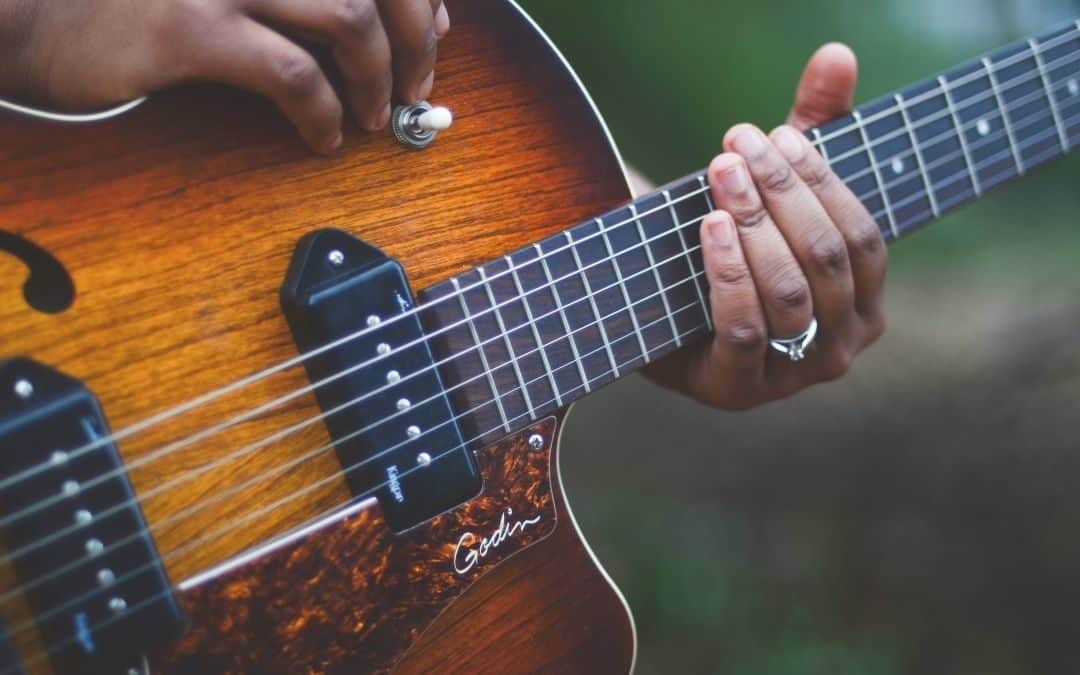I grew up in the ’60’s and ’70’s in the Mid-West, which had a big impact on my early taste in music. My mom loved Broadway musicals, as I soon did as well, and my first records were the Sound of Music and Fiddler on the Roof. As I grew into my early teens, an older cousin introduced me to Dan Fogelberg, Joni Mitchell, and John Denver. I heard ‘Rocky Mountain High,’ and fell hard.
My husband, Peter, is an ardent, self-taught musician; in marrying him my musical tastes were upended. He loves Jimi Hendrix and Frank Zappa, as well as Gustav Holst, Muddy Waters, Billie Holiday, and The Band. For him, the style of music is not what’s most important—he’s open to it all. His litmus test is authenticity.
It’s taken a while to see, or more precisely, to hear what Peter hears. Jimi and Frank are way outside my comfort zone—my nervous system tips easily toward overload from the sheer electric volume and raw edges of the sound. But over the years I’ve come to appreciate the boldness, unbounded creativity, as well as humor of Jimi’s and Frank’s music. To watch videos of Jimi playing is a lesson in non-separation, the guitar a seamless extension of his body and mind, the music a straight shot of his soul.
A few years ago, when Frank Zappa’s son Dweezil came to town to give a concert of his dad’s music, I bought tickets for Peter and me. In the front row. As if it were just Dweezil, his band, and us, at full amplitude.
Peter was completely absorbed. I practiced attending to my breath, as the songs that I could least appreciate played on. I closed my eyes, held Peter’s hand, and sank down under the sound as best I could. And then, for the last song, the band departed, leaving just Dweezil and his guitar onstage. He sat on a stool, not more than 15 feet from us, and played “Watermelon and Easter Hay,” simple, direct, lyrical. He played, and as he played he wept. It was a moment of sheer beauty and presence and heart. No separation.
It’s taken me a long time to recognize that this kind of playing is no different than what I practice on the cushion, or aspire to in my life. I’ve heard Jon Kabat-Zinn say, “None of us has a snowball’s chance of becoming more of someone else. The only chance any of us ever has is becoming more of who we already are.”
What would it take in this moment for you, for me, to inhabit our lives with full authenticity, unapologetically? To step into the brilliance and messiness and miracle of this one human flowering of life? Teachers are all around us—Jon, Jimi, Joni, Frank & Dweezil— and point in the same direction: life is too short to live it following someone else’s agenda, singing someone else’s song. Listen, deeply, and play on!


This is beautiful Janet! I have seen this so many times with musicians. It’s one reason why am learning to play guitar. But I am so not there yet. So I just keep practicing. One time someone asked me what I think about when I’m playing guitar. Honestly, I’m still at the point where I’m just thinking about if the song sounds right and if I’m doing it right. Just like an early meditator! Every now and then, on a song that I feel more confident with I occasionally feel one with it. Even if it’s just for a couple of bars. Thank you for this lovely summary!
Thank you for sharing your experience, Cynthia!! GO YOU!! Embracing ‘beginner’s mind’ once again–with music and playing, another doorway in to the same ‘room.’ Much warmth~ Janet
I loved this Janet: your showing up with appreciation for your husband’s passions; seeing beyond the music to the power of presence and engagement, and that quote from JKZ!
Thank you, Rachel! 🙂
Gorgeous
Thank you, Anne!! 🙂
Thank you!
I attended high school in Edwardsville, Illinois, and it was “Sound of Music” and “Mary Poppins”? ?
One of a kind!
Me, myself and I….
an audience of ONE!
No replacements and no substitutions either!
Yes, yes!! I know them well! 😉 Thanks for sharing here, Janet!